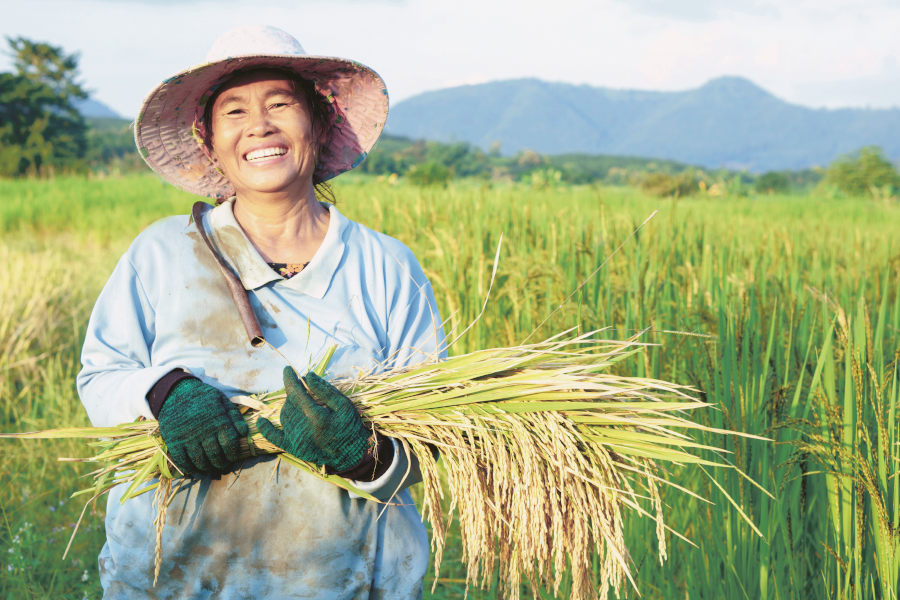
ThaiBev has launched numerous farmer development campaigns, collaborating with both private and government sectors, in order to support and educate local farmers in practicing sustainable agriculture and in compliance with applicable renowned standards e.g. BonSucro, RSPO, SAI Platform, Good Agricultural Practice (GAP) etc.
Recognizing the value and importance of natural sources and the environment, we incorporate farmers development programs into community development with emphasis in the area of sustainable agriculture management and conservation of natural resources. In cooperatrion with Utokapat Foundation (Under Royal Patronage of H.M. the King), we established a project called ‘Developing Water, Developing Lives, Developing Quality of Lifes’ with the goal to help conserve water and forest resources, and promote sustainable economic development at local level, through a three-step process.
community members learn about local water sources and waterways, in order to understand their own water system and create a water supply map.
community members come up with a local water management initiative make a grant proposal do a public hearing to gauge community understanding and for the Foundation to give recommendations to ensure maximum performance of the community’s initiative.
community members execute the development initiative, with participation from locals and newly trained youth groups so as to ensure long-term results and continuation.
As part of the project, ThaiBev has worked with farmers to help them develop a water distribution system based on ‘New Agriculture Theory’ which requires less amount water, The project also aims to promote efficient water management by dredging canal to maintain a suitable water level for fish conservation during dry season and helped manage and store water in the canal for later consumption and agriculture. The New Theory of Agriculture also helped farmers decreased their agricultural expense while at the same time increased their income.

1. Earth-and-stone dam, Ban Pak Suat
2. Recovery of a fish conservation area, Ban Wang Si Phrai
Developing Water, Developing Lives, Developing Quality of Lifes’ Project

The majority of these local farmers are our non-tier 1 suppliers who cultivate and supply agricultural commodities to our tier 1 suppliers. Understanding the challenges local farmers face in adopting sustainable agriculture practice, we encourage our tier 1 suppliers to implement similar farmer support programs to ensure that the farmers have sufficient knowledge and resources.
Example of Thaibev's Supplier's Water Management

Soil Fertility

Water
Conservation

Organic
Farming

Biodiversity
Conservation

Income
Distribution

Compliance with
Applicable Standards

Environmental Pollution and GHG emission












